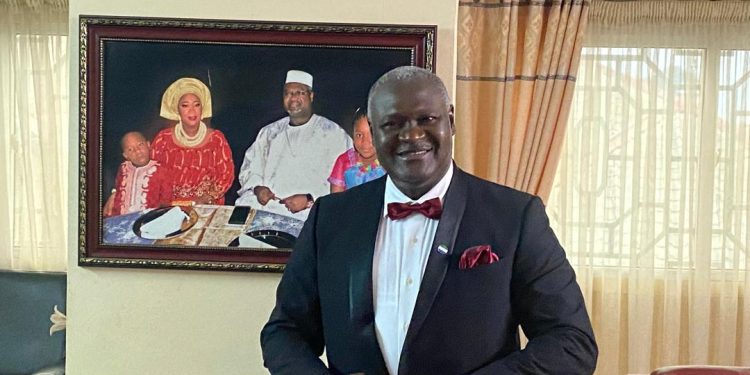In the often tumultuous world of Sierra Leonean politics, where leadership has frequently been marred by divisive partisanship and political uncertainty, Joseph Fitzgerald Kamara (JFK) has risen as a figure of unparalleled integrity, intellect, and promise. With a legal career that has garnered both national and international recognition, his accomplishments have positioned him as one of the most distinguished leaders in the country. As the political landscape gears up for the 2028 elections, Kamara’s track record, visionary leadership, and commitment to national development make him the leading contender for the presidency. More than just a politician, he embodies the aspirations of a new Sierra Leone-a country yearning for transformational leadership.
Early Life and Academic Excellence
Born into a family that valued education and service, Joseph Fitzgerald Kamara’s early years were shaped by a strong sense of duty and a desire to make a meaningful impact. His academic journey began in earnest at the revered Saint Francis Secondary School in Makeni, where he demonstrated a keen intellect, graduating with high honours. His performance at Saint Francis set the tone for what would become a brilliant academic and professional career.
Kamara’s journey to excellence continued at the Fourah Bay College (FBC), University of Sierra Leone—the country’s premier institution of higher learning. As a student, Kamara was known for his diligence, critical thinking, and unwavering commitment to justice. He quickly stood out among his peers, often engaging in thought-provoking debates on governance, the rule of law, and national development. It was during his university years that Kamara began to cultivate the political and leadership skills that would later define his career.
His time at FBC was not only academically enriching but also politically formative. Kamara was involved in various student organizations and initiatives that sought to address pressing national issues. He quickly became known for his advocacy for justice and the rule of law, traits that would become the hallmark of his career. Graduating with distinction, he left university with a clear sense of purpose: to contribute to the development of Sierra Leone through the legal and political arenas.
Legal Career and Contributions to National Development
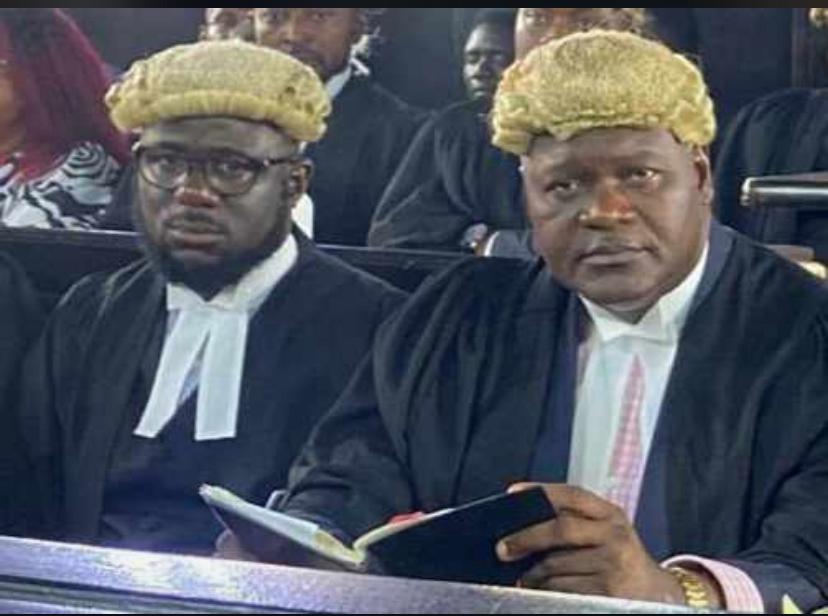 Joseph Fitzgerald Kamara’s legal career began shortly after his graduation from Fourah Bay College when he was called to the Sierra Leone Bar. His exceptional performance as a lawyer earned him accolades early on, and he was soon recognized as one of the brightest legal minds in the country. However, it was his role as the Commissioner of the Anti-Corruption Commission (ACC) that would bring him to the forefront of national attention.
Joseph Fitzgerald Kamara’s legal career began shortly after his graduation from Fourah Bay College when he was called to the Sierra Leone Bar. His exceptional performance as a lawyer earned him accolades early on, and he was soon recognized as one of the brightest legal minds in the country. However, it was his role as the Commissioner of the Anti-Corruption Commission (ACC) that would bring him to the forefront of national attention.
As ACC Commissioner, Kamara waged a determined fight against corruption-one of the most deeply entrenched issues in Sierra Leone. His tenure was marked by bold actions and unprecedented transparency, as he led investigations into some of the most significant corruption cases in the country’s history. Kamara was not afraid to go after high-profile individuals, making it clear that no one was above the law. His fearless approach restored public confidence in the Commission, and for the first time in many years, Sierra Leoneans began to believe that justice could prevail in the fight against corruption.
Kamara’s contributions at the ACC earned him both national and international recognition. His efforts contributed to a marked improvement in Sierra Leone’s ranking on global anti-corruption indices, a testament to the success of his initiatives. He introduced reforms that enhanced the efficiency and effectiveness of the ACC, ensuring that it was better equipped to handle cases and provide timely investigations. Kamara’s legacy at the ACC is one of boldness, integrity, and an unwavering commitment to good governance.
The Role of Attorney General and Minister of Justice
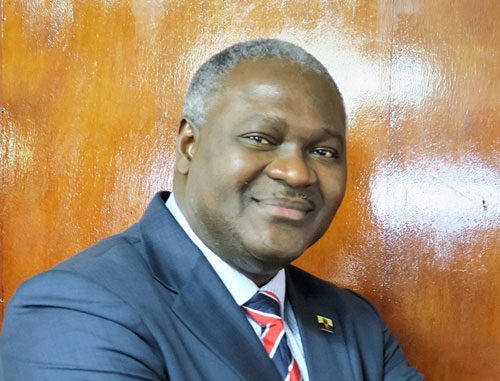 After his successful tenure at the ACC, Kamara was appointed Attorney General and Minister of Justice, a role that allowed him to further influence national policy and the rule of law in Sierra Leone. His time as Attorney General was characterized by his commitment to judicial reforms and his dedication to ensuring that justice was not only done but also seen to be done.
After his successful tenure at the ACC, Kamara was appointed Attorney General and Minister of Justice, a role that allowed him to further influence national policy and the rule of law in Sierra Leone. His time as Attorney General was characterized by his commitment to judicial reforms and his dedication to ensuring that justice was not only done but also seen to be done.
Kamara played a pivotal role in reforming the country’s judicial system, working tirelessly to ensure that legal institutions were independent and free from political interference. His efforts to modernize the judiciary and enhance access to justice were particularly beneficial to marginalized communities who had previously struggled to navigate the legal system. Under his leadership, several outdated laws were reviewed and amended, ensuring that Sierra Leone’s legal framework was aligned with international standards.
Kamara’s tenure as Attorney General also saw significant improvements in the area of human rights. He was a strong advocate for the protection of fundamental freedoms and worked to ensure that Sierra Leone’s international obligations in this area were fulfilled. His leadership in this regard earned him respect both within Sierra Leone and abroad, further solidifying his reputation as a champion of justice.
A Visionary Leader for a New Sierra Leone
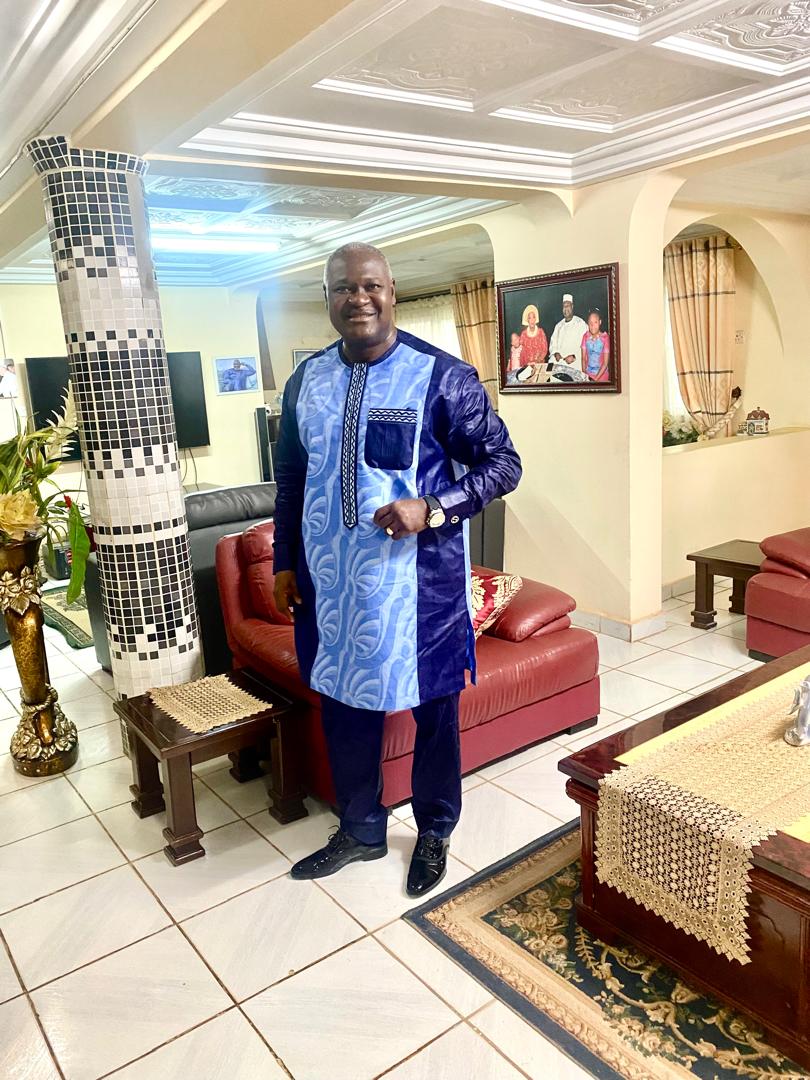 As Sierra Leone looks towards the 2028 elections, it is clear that the country is at a crossroads. Economic challenges, political instability, and social unrest have left many Sierra Leoneans disillusioned with the status quo. In Joseph Fitzgerald Kamara, however, there is a sense of hope—a belief that transformational leadership is within reach.
As Sierra Leone looks towards the 2028 elections, it is clear that the country is at a crossroads. Economic challenges, political instability, and social unrest have left many Sierra Leoneans disillusioned with the status quo. In Joseph Fitzgerald Kamara, however, there is a sense of hope—a belief that transformational leadership is within reach.
Kamara’s vision for Sierra Leone is grounded in his understanding of the country’s challenges and his commitment to addressing them head-on. His economic plans focus on fostering a vibrant private sector, reducing unemployment, and promoting sustainable development. He has consistently advocated for policies that would diversify the economy, moving Sierra Leone away from its reliance on mining and toward a more diversified and resilient economic base.
One of Kamara’s core beliefs is that Sierra Leone’s true potential lies in its people. As such, he has championed policies aimed at improving education, healthcare, and infrastructure. His education policy, in particular, focuses on ensuring that every child in Sierra Leone has access to quality education, which he views as the foundation of national development. He has also emphasized the importance of investing in human capital through vocational training and skills development programs, which would equip the next generation of Sierra Leoneans with the tools they need to succeed in a rapidly changing global economy.
Joseph Fitzgerald Kamara’s Chances of Winning the 2028 Elections
As the political momentum builds toward the 2028 elections, Kamara’s prospects look brighter than ever. His impeccable track record in public service, his ability to navigate complex political environments, and his unblemished reputation make him a formidable candidate. His work at the ACC and as Attorney General has earned him widespread respect, not only within the APC but across the political spectrum.
What sets Kamara apart from other contenders is his ability to unite Sierra Leoneans around a common goal. He is a consensus builder, able to bridge the divide between party lines, regional differences, and tribal affiliations. This broad appeal will be critical in a country as diverse as Sierra Leone, where voters are increasingly looking for a leader who can rise above the fray and deliver real results.
Kamara’s chances of winning the 2028 elections are further bolstered by his widespread popularity among young voters. As a politician who has consistently advocated for policies that benefit youth and improve job prospects, Kamara has managed to capture the imagination of a generation eager for change. His forward-thinking policies and his ability to connect with Sierra Leone’s youth will be a significant factor in his campaign.
The Hope of Sierra Leone in His Hands
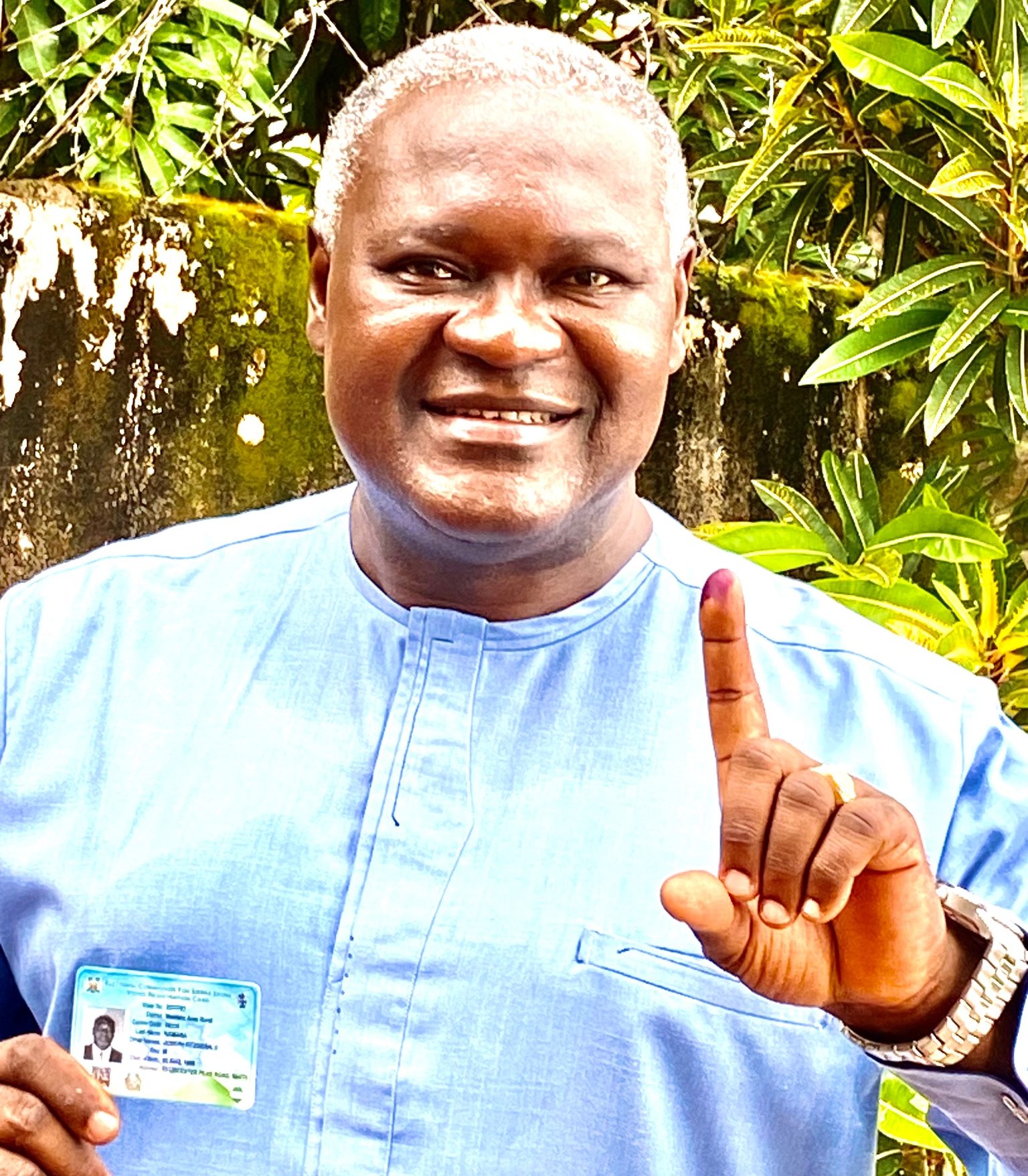 Sierra Leone stands at a critical juncture. The country is faced with numerous challenges—economic instability, political unrest, and social inequality. However, there is also an opportunity for transformation, and in Joseph Fitzgerald Kamara, many Sierra Leoneans see the leader who can guide the nation toward a brighter future.
Sierra Leone stands at a critical juncture. The country is faced with numerous challenges—economic instability, political unrest, and social inequality. However, there is also an opportunity for transformation, and in Joseph Fitzgerald Kamara, many Sierra Leoneans see the leader who can guide the nation toward a brighter future.
Kamara’s leadership offers hope not just for political stability but for the genuine development of the country. His commitment to the rule of law, his dedication to fighting corruption, and his belief in the power of education and economic empowerment make him the ideal candidate to take Sierra Leone forward. Under his leadership, there is a real possibility that Sierra Leone could emerge as a beacon of hope in West Africa—a country that has overcome its challenges and built a future based on justice, fairness, and opportunity for all.
In conclusion, Joseph Fitzgerald Kamara’s journey from a young boy in Makeni to one of Sierra Leone’s most respected political figures is a testament to his dedication, hard work, and vision. As the country looks towards the 2028 elections, there is a growing belief that Kamara is not just the best candidate for the APC flagbearer but also the leader who can truly transform Sierra Leone. With him, Sierra Leone’s future looks brighter, more prosperous, and filled with hope.


